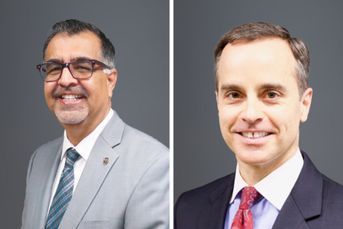One-third of healthcare workers aren’t confident about retirement

Despite 91 percent being in a workplace savings plan, uncertainty over saving, debt, and other issues are making healthcare employees doubtful.
A recent report from the TIAA Institute reveals that one out of three healthcare employees, including doctors, surgeons, and registered nurses, lack confidence in their retirement savings.
The study, “Retirement Readiness in the Healthcare Sector,” highlights that 42 percent of registered nurses feel uncertain about their financial preparedness for retirement.
While 91 percent of healthcare employees participating in employer-based savings plans, 34 percent of respondents are unsure if they are saving enough, while 24 percent doubt their investments are properly managed.
Another 28 percent are worried about their nest egg’s sustainability, fearing they won’t have sufficient funds to retire comfortably.
Debt is a prevalent issue as 85 percent of employees reported carrying some form of debt, including 45 percent who said they save less due to this financial burden, including student loans.
“We know that student loan debt affects retirement confidence because paying off loans gets in the way of saving. And those with debt are more likely to tap into their savings before retiring, creating a vicious circle,” Surya Kolluri, head of TIAA Institute, said in a statement.
Reinforcing the crucial role of advice, the research found that 51 percent of healthcare retirement savers received professional planning advice over the past two years. Among those advised healthcare workers, 26 percent felt “very confident” about their retirement prospects, compared to only 15 percent of non-advice seekers. Notably, 47 percent of those who followed all the advice received reported high confidence.
“We often consider our healthcare professionals our heroes and we want them to feel good about how they’re preparing for retirement after a life of dedicating themselves to others,” said Jim Mullery, head of institutional relationship management. “Retirement planning advice is the first step toward improving retirement readiness and income security.”
The study also found that three-fifths (58 percent) of healthcare employees are likely to use an annuity for retirement income. Among those not likely to annuitize, the research found that a two-thirds majority ranked “not outliving financial assets” as a high financial priority in retirement.
“Reluctance to annuitize signals a retirement planning disconnect that’s easily overcome with some advice and education,” Mullery said.
Beyond not depleting their wealth in retirement, researchers found retirement savers in the healthcare sector placed an emphasis on maintaining their standard of living throughout retirement, as well as ensuring that a surviving spouse or partner is financially secure.
Learn more about reprints and licensing for this article.








